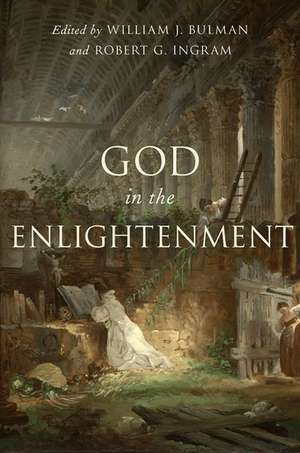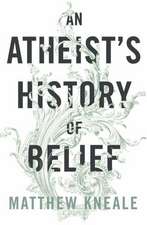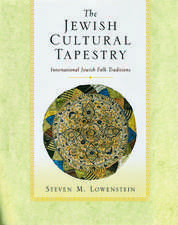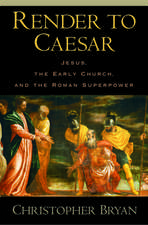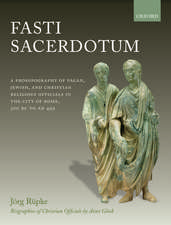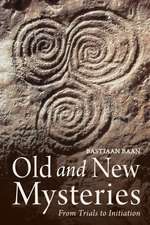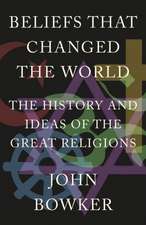God in the Enlightenment
Editat de William J. Bulman, Robert G. Ingramen Limba Engleză Paperback – 16 iun 2016
Preț: 253.83 lei
Preț vechi: 281.14 lei
-10% Nou
Puncte Express: 381
Preț estimativ în valută:
48.57€ • 50.84$ • 40.43£
48.57€ • 50.84$ • 40.43£
Carte tipărită la comandă
Livrare economică 19-25 martie
Preluare comenzi: 021 569.72.76
Specificații
ISBN-13: 9780190267087
ISBN-10: 0190267089
Pagini: 336
Ilustrații: 1
Dimensiuni: 155 x 234 x 23 mm
Greutate: 0.44 kg
Editura: Oxford University Press
Colecția OUP USA
Locul publicării:New York, United States
ISBN-10: 0190267089
Pagini: 336
Ilustrații: 1
Dimensiuni: 155 x 234 x 23 mm
Greutate: 0.44 kg
Editura: Oxford University Press
Colecția OUP USA
Locul publicării:New York, United States
Recenzii
very much because of the volume's successes and the stylistic and interpretive issues it raises, each contribution to God in the Enlightenment advances our understanding of the period by sparking further debate about, and investigation into, what in France was known to contemporaries as the siècle de lumières (century of lights). This important edited volume depicts the Enlightenment as a diverse constellation of reform programs that had, among their origins, theological controversies of the sixteenth to eighteenth centuries, and as their consequences, seismic shifts in how Modern Europeans (and the societies shaped or disrupted by them) would eventually talk about God, faith, and religious expression.
No reader of this valuable collection will be left in any doubt that the traditional view of the period as a radical break with the past is not merely misleading but fundamentally erroneous. In a kaleidoscopic array of essays ranging in topic from Hobbes and Spinoza to Leibniz and Kant and from Hinduism to pre-Hispanic Andean religions, the resilience of the Renaissance and the Reformation is everywhere in evidence. God not only survived but seemed to thrive in an environment that we have grown accustomed to conceiving as characteristically individualistic and libertarian but which was just as often, and just as vigorously, communitarian and authoritarian.
God in the Enlightenment incorporates many insightful discussions on a diverse range of topics, and embodies the ethos of recent trends in Enlightenment studies... It will be of a great interest to those who wish to explore the origins of contemporary discussions on the role and place of religion in liberal democracies.
This work shines with essays from an intellectual diversity of important scholars and often strikingly original perspectives. It not only addresses the increasingly problematic interaction of religion and the eighteenth-century Enlightenment in provocative and significant ways, it goes to the underlying issue of the place of God in Enlightenment debate, dilemmas, continuities, and reevaluations. This is a genuinely important collection.
No reader of this valuable collection will be left in any doubt that the traditional view of the period as a radical break with the past is not merely misleading but fundamentally erroneous. In a kaleidoscopic array of essays ranging in topic from Hobbes and Spinoza to Leibniz and Kant and from Hinduism to pre-Hispanic Andean religions, the resilience of the Renaissance and the Reformation is everywhere in evidence. God not only survived but seemed to thrive in an environment that we have grown accustomed to conceiving as characteristically individualistic and libertarian but which was just as often, and just as vigorously, communitarian and authoritarian.
God in the Enlightenment incorporates many insightful discussions on a diverse range of topics, and embodies the ethos of recent trends in Enlightenment studies... It will be of a great interest to those who wish to explore the origins of contemporary discussions on the role and place of religion in liberal democracies.
This work shines with essays from an intellectual diversity of important scholars and often strikingly original perspectives. It not only addresses the increasingly problematic interaction of religion and the eighteenth-century Enlightenment in provocative and significant ways, it goes to the underlying issue of the place of God in Enlightenment debate, dilemmas, continuities, and reevaluations. This is a genuinely important collection.
Notă biografică
William J. Bulman is Assistant Professor of History at Lehigh University. Robert G. Ingram is Associate Professor of History and Director of the George Washington Forum on American Ideas, Politics, and Institutions at Ohio University.
